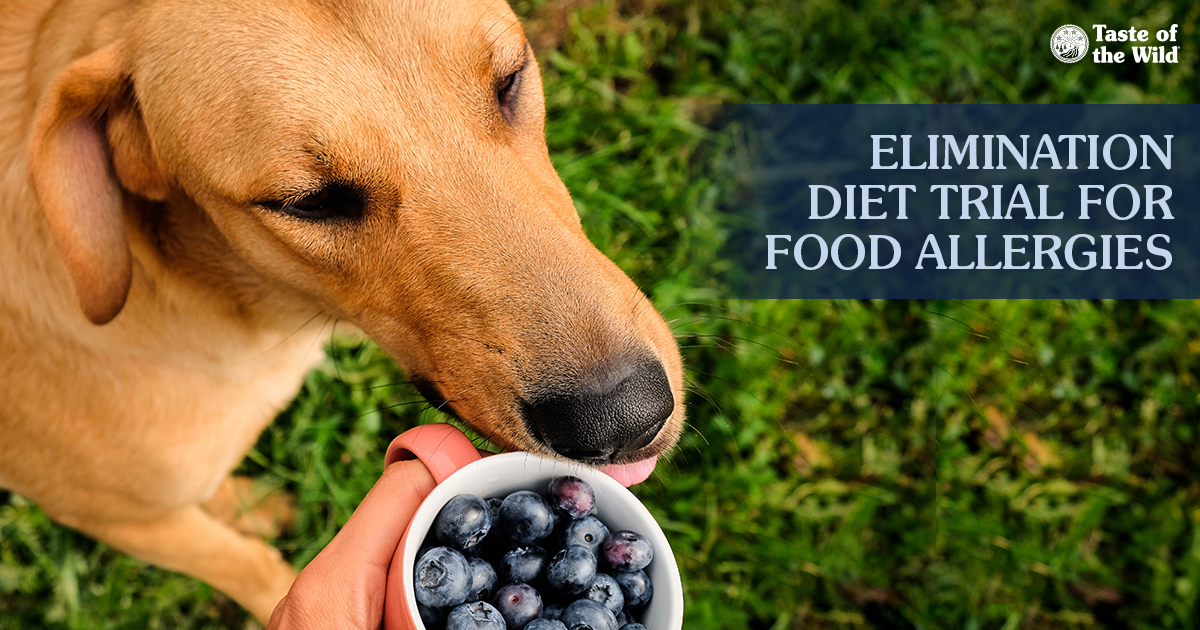Can Nutrition Influence Your Dog’s Behavior?
Category: Nutrition

If, as they say, “you are what you eat,” dietary ingredients could impact a dog’s health. Since our health affects how we feel, it seems logical that it could also affect how we act. But is there any evidence of a connection between dog food and behavior in dogs?
Dog Food Nutrition Needs to Be Balanced
Certainly, a poor diet can alter a dog’s normal behavior. Diets that are deficient in essential nutrients can lead to serious health issues, including anemia and brittle bones. If a dog isn’t feeling well because they’re weak or feeling pain, that can certainly impact their behavior.
That’s why one of the most important parts of any dog food label is the nutritional adequacy statement that indicates the pet food is “nutritionally complete and balanced” for your dog’s particular life stage. Commercial foods that list the nutritional adequacy statement have met the guidelines established by the Association of American Feed Control Officials (AAFCO).
Because the nutrient requirements (protein, essential amino acids, fat, vitamins and minerals) of dogs change over their lifetime, there are three nutritional adequacy statements that can be found on a dog food label depending on the diet: growth and reproduction, adult maintenance and all life stages. Diets that are designed for all life stages meet the nutritional requirements for both the growth and reproduction stage as well as adult maintenance stage. So make sure you consider your dog’s life stage when choosing their diet. A healthy dog is generally a happy dog!
Yet even a healthy diet can become unbalanced if treats or table scraps make up more than 10 percent of the dog’s daily calories. Similarly, if you’re not following the feeding directions on the label, imbalances can occur. And unless homemade diets are prepared under the guidance of a veterinary nutritionist, it can be easy for dietary deficiencies to occur.
Does Raw Meat Make Dogs Aggressive?
It has been suggested that higher dietary protein may be associated with canine aggression. That’s why some recommend a low-protein diet for an adult dog with aggression problems. However, studies testing this concept have been flawed and results were conflicting, so more research is needed.
The theory behind the low-protein diet revolves around tryptophan, an amino acid involved in the production of serotonin, the neurochemical purported to create a calming effect. Tryptophan competes with other amino acids (which are components of protein) to cross the barrier into the brain. With less protein in the diet, it’s surmised there will be a greater chance for tryptophan, and eventually serotonin, to enter the brain, thereby promoting calm while reducing aggression.
Regardless, healthy adult dogs need at least 4.5 grams of protein per 100 calories of food, so there needs to be a minimum amount of protein provided.
Pet Food Nutrition and the Aging Canine Brain
Current research does support the positive effects of nutrition on brain aging.
Older dogs can experience cognitive dysfunction syndrome (CDS), which has been likened to human Alzheimer’s disease. Affected dogs may appear disoriented, interact less with family, lose house training and show changes in sleep/wake cycles, such as wandering around the house at night.
Several factors are thought to contribute to brain aging and cognitive decline in dogs, including chronic oxidative stress, reduced brain glucose metabolism and low-grade inflammation.
Some evidence has been found recently that certain ingredients, typically added to the diet or given in supplement form, may help improve clinical signs and slow cognitive decline in older dogs.
For example, antioxidants such as vitamins E and C in your dog’s diet may help neutralize the damaging effects of free radicals on cells, thereby protecting the brain from oxidative stress. These ingredients may have anti-inflammatory effects, as well.
To counter the effects of reduced cerebral glucose metabolism, medium-chain triglycerides in the diet can be converted to ketone bodies, providing the brain with an alternative energy source to glucose. In one study, dogs that were fed diets supplemented with medium-chain triglycerides performed better on cognitive tests than dogs fed the control diet.
How to Make Your Dog Happy
While good nutrition may have positive effects on canine behavior, many problems need a combination of therapies, including behavioral modification or training, environmental management and possibly medications. If you have questions about canine behavior and nutrition and how they may affect your dog’s life, your veterinary clinic is the best place to start.
The information in this blog has been developed with our veterinarian and is designed to help educate pet parents. If you have questions or concerns about your pet’s health or nutrition, please talk with your veterinarian.




